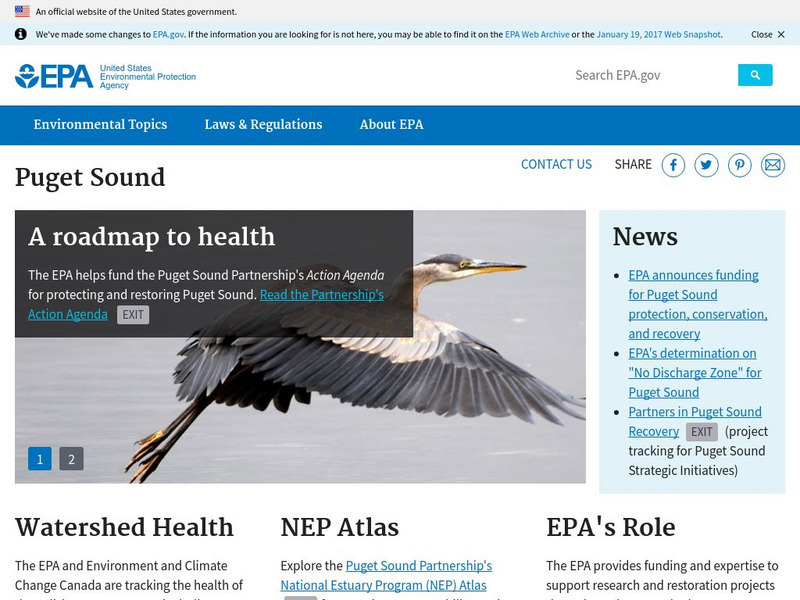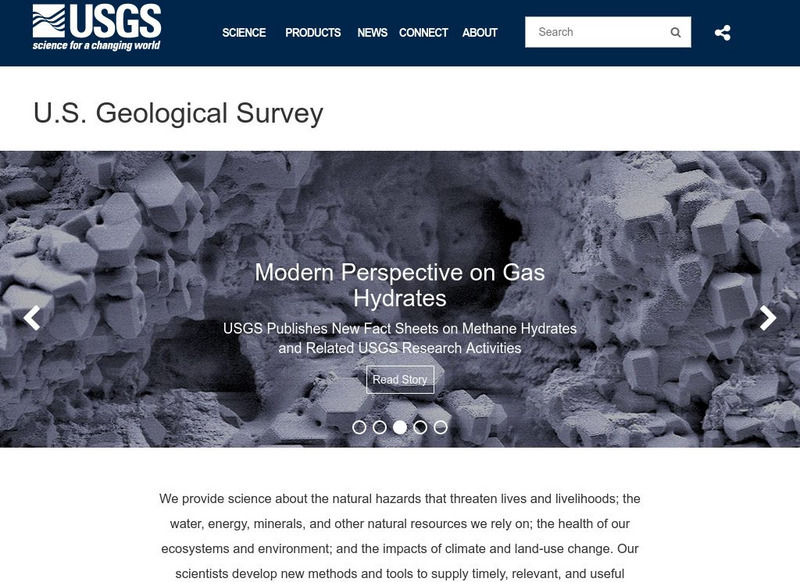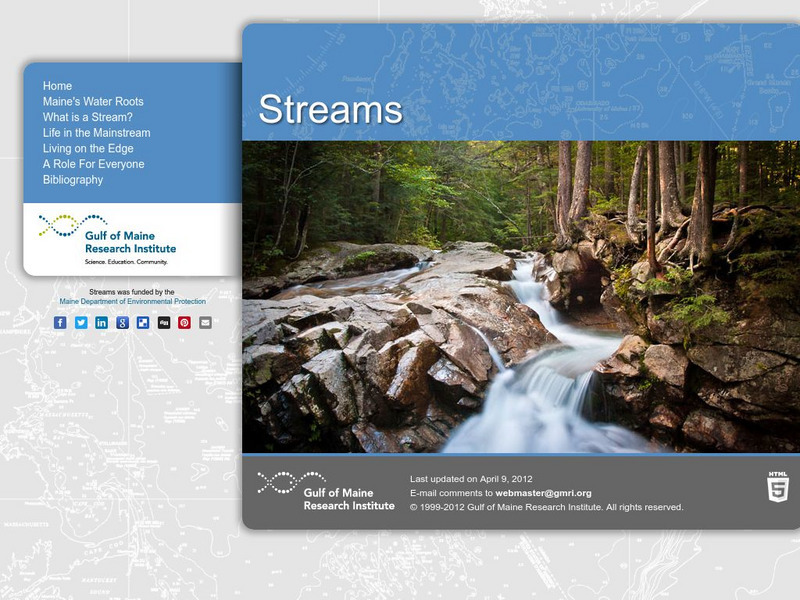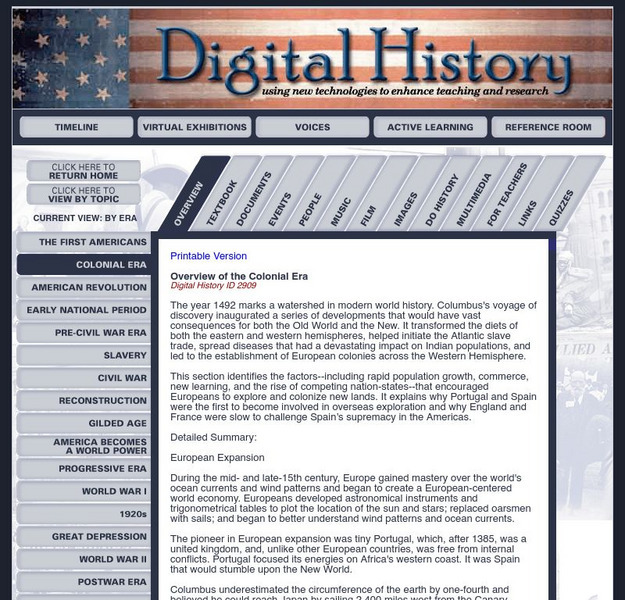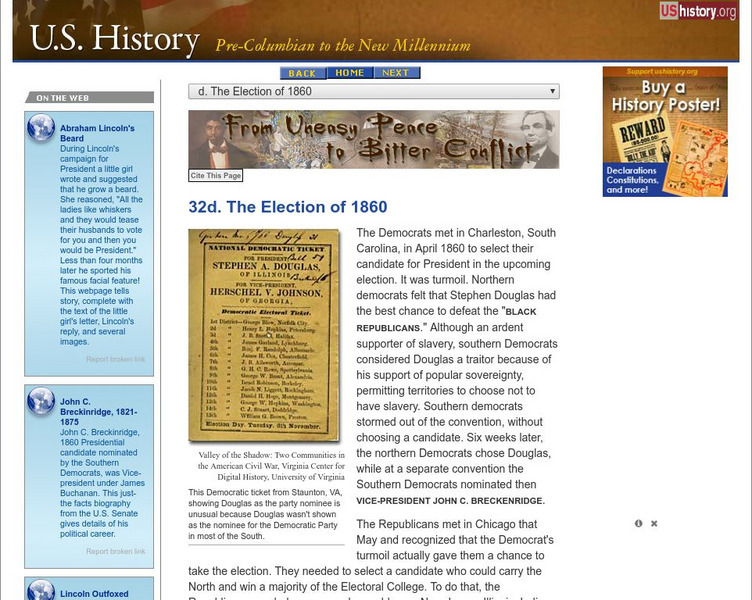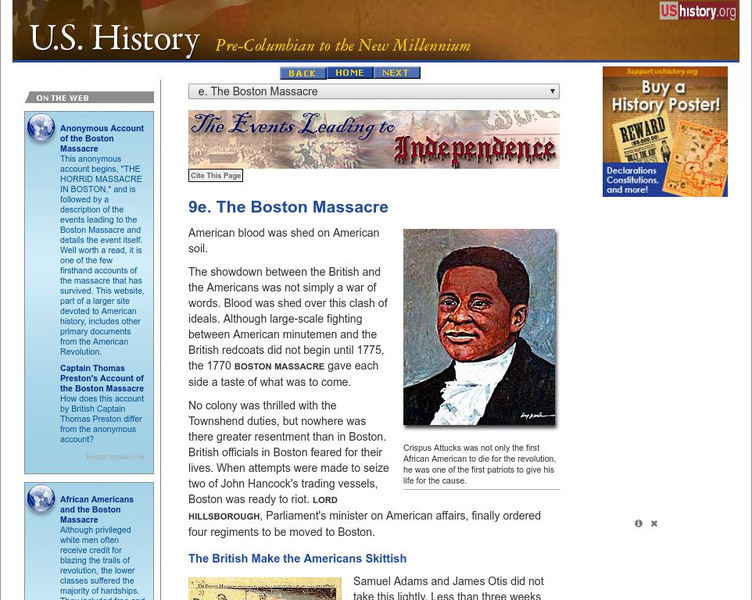US Fish and Wildlife Service
U.s. Fish & Wildlife Service: Fishing
The official web site of the government agency offers a broad range of information, including statistical as well as species and breed documentation. National laws and guidelines are also available, including information on where fishing...
PBS
Pbs Learning Media: Taming the Mississippi
At 2,300 miles long, the Mississippi River is the second longest river in North America. People have tried to control the flow of the river to prevent floods and keep it flowing towards port cities. This can lead to loss of land in the...
US Geological Survey
Usgs: Water Science for Schools Water Science Storytime!
This U.S. Geological Survey website features a fictious town, Dryville, and uses it to illustrate every aspect of water management that you might encounter. Click Home to access the site in Spanish.
US Geological Survey
Usgs: Water Science for Schools Activities Center
This website offers three activity centers: Questionnaires, Opinion Surveys, and Challenge Questions. Take a look at these interesting water research activities from the US Geological Survey. Click Home to access the site in Spanish.
Nature Conservancy
The Nature Conservancy: Managing Salmon to Support Healthy Forests
In this lesson plan, young scholars address the impact of unsustainable fishing practices.
US Environmental Protection Agency
Epa: Why Are Wetlands Important?
Find out why wetlands provide natural water quality, flood protection, erosion control, recreation and aesthetic appreciation, and natural products.
US Environmental Protection Agency
Epa: Puget Sound
Learn facts about this important and diverse ecosystem in America's Pacific Northwest.
Texas Education Agency
Texas Gateway: Human Impact
This tutorial provides some insight to the study of human impacts on water supplies.
US Geological Survey
U.s. Geological Survey
The U.S. Geological Survey reports on the latest news affecting the earth today, as well as providing a wealth of data, reports, and information.
Gulf of Maine Research Institute
Gulf of Maine Aquarium: Streams
This site provides extensive information about streams. It gives an in-depth look at what a stream is, the kinds of wildlife that live by streams, and things we can do to protect and prevent pollution of streams.
NOAA
Noaa: Chesapeake Bay Interpretive Buoy System: Data in the Classroom
NOAA Smart Buoys collect and transmit real-time weather, water conditions, and water quality data. Chesapeake Exploration gives teachers and their students unprecedented access to lessons designed around real-time observational data from...
Other
Virtual Field Trip: Water/aquifers
This virtual field trip for middle school students looks at aquifers and their place in the hydrologic cycle. Students learn why and how it is important to protect the source of your drinking water and some unique details about the...
Other
Water on the Web
Water on the Web (WOW) is an advanced site allowing students to actively participate in data analysis from real research sites. Lesson plans on a range of topics are provided. There is also a tutorial for using Excel to graph WOW data.
US Geological Survey
U.s. Geological Survey: Groundwater Information by Topic
A massive amount of information about groundwater. Topics covered include groundwater basics, humans and groundwater, groundwater quality, and its place in the water cycle. Includes true-and-false quiz and a Q&A section, as well as a...
Other
Derm: Water Cycles and Catchments
Students develop an understanding of the water cycle and water catchments. This learning module is divided into introductory, developmental, and culminating activities, and also has several assessment strategies. Resource sheets...
BSCS Science Learning
Bscs: Restoring Oyster Reefs
After learning about the role of oysters in an estuary ecosystem and a population decline that oysters have faced over time from overharvesting and pollution, learners work with data to determine where are ideal sites for restoring...
BSCS Science Learning
Bscs: Restoring Oyster Reefs
After learning about the role of oysters in an estuary ecosystem and a population decline that oysters have faced over time from overharvesting and pollution, students work with data to determine where are ideal sites for restoring...
Digital History
Digital History: Overview of the Colonial Era
The year 1492 marks a watershed in modern world history. Columbus's voyage of discovery inaugurated a series of developments that would have vast consequences for both the Old World and the New. It transformed the diets of both the...
Other
Ncdenr: What Is a River Basin?
Explains what a river basin is, and why it is important to take good care of it. Includes an activity where students build a simple 3-D paper model to illustrate how a watershed can become polluted.
Independence Hall Association
U.s. History: The Election of 1860
The election of Abraham Lincoln in 1860 was a watershed moment for the union of the country. Read about the political conventions, several candidates, and the votes that were split among them. Find a map that shows how the electoral...
TeachEngineering
Teach Engineering: You Are What You Drink!
Contamination in drinking water sources or watersheds can negatively affect the organisms that come in contact with it. The affects can be severe - causing illness or, in some cases, even death. It is important for people to understand...
Other
Maine: The Lakes Environmental Association
The site offers several areas of interest to those promoting ecological awareness and education: watershed information, lake protection, loon culture and behavior, and Eurasion Watermilfoil, an "invasive aquatic plant."
Independence Hall Association
U.s. History: The Boston Massacre
The Boston Massacre was a watershed event in the relations between the American colonists and their mother country. Read about what led up the shooting, the event itself, and its aftermath. Included is a contemporary account of the...
Other
Virginia Places: What Determines the Boundaries of a Region in Virginia?
Although this site talks about regions in Virginia, it offers excellent information on regions in general, for example, ways regions might be classified; e.g., by population density, geology, watershed, ecosystem, economy,...
Other popular searches
- Mississippi River Watershed
- Chesapeake Bay Watershed
- Watershed Hydrology
- Watershed and Water Quality
- Watersheds and Wetlands
- Watershed and Drinking Water
- Great Lakes Watershed
- Apalichicola River Watershed
- Delineate a Watershed
- Watershed Management
- Virginia Watersheds
- Pennsylvania Watersheds






